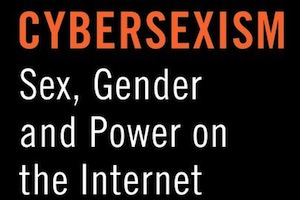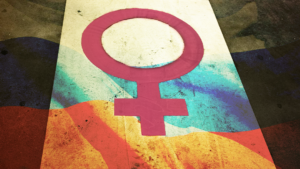Cybersexism Reviewed
Rather than engaging "a transgressive subculture that embodies many of the internet’s most celebrated radical qualities," New Statesman editor Laurie Penny in her new book "blames the misogyny of geek counterculture on a host of unhip and easily mocked caricatures: conservatives, jocks, tabloids and traditional mainstream masculinity."
Rather than engaging “a transgressive subculture that embodies many of the internet’s most celebrated radical qualities: free access, user-generated content, anonymity, an anti-celebrity, anti-hierarchy ethic and absolute freedom of speech,” New Statesman editor Laurie Penny, in her new book, “Cybersexism: Sex, Gender and Power on the Internet,” “blames the misogyny of geek counterculture on a host of unhip and easily mocked caricatures: conservatives, jocks, tabloids and traditional mainstream masculinity,” writes Angela Nagle at the Dublin Review of Books.
Nagle continues:
The online phenomenon 4chan/b/, which has its roots in earlier geek subcultures and which Penny has often praised, has created hacker groups like Anonymous, whose Guy Fawkes mask became the central symbol of the #occupy movement, but it is also the place where major attacks against prepubescent girls and feminists are regularly organised, revenge porn is standard, and terms like “cumdumpster” form part of a slang and style that has spread far beyond the site itself. Its misogyny and its misanthropy spring from the same anti-mass culture sensibility that despises an increasingly feminised and popular internet, once ruled over by subcultural male geeks and now flooded with selfies. Penny seems to wish to divert attention from the real source and nature of online misogyny in her book because ultimately, she shares most of its cultural politics.
The book’s approach belongs in the tradition of post-left anarchists like Hakim Bey, once criticised by Murray Bookchin for “lifestyle anarchism”, with a focus on networks and temporary sites of transgression. It is written in the style of 90s utopians like John Perry Barlow, who celebrated the end of all things material, and cyberfeminist Sadie Plant, who believed that the anarchic anonymous world of the internet would blur gender boundaries and create an environment for women to flourish and to be free.
Although she more or less admits at the outset that transgressive, irreverent, geek spaces like 4chan are at the heart of contemporary online misogynist culture, Penny proceeds throughout the rest of the book to characterise the problem as a conservative throwback. “Germaine Greer wrote in The Female Eunuch that women had no idea how much men hate them. Well, now we do. […] We can observe men speaking about us as they have for centuries when they thought we weren’t watching.” Are we really to believe that in the dark pre-internet past men talked amongst themselves about how they wanted to decapitate and anally rape women with kitchen utensils? Or that they would refer to women as cumdumpsters? Are we really to believe that the geek misogynist style accurately represents mainstream masculinity or, to use David Cameron’s phrase, “the bad old days of the past”? The bizarre implication of this statement tells the reader something about the writer’s view of humanity but little about humanity itself.
Women have been reporting this kind of behaviour since the mid-90s and have consistently described it as coming from geek subcultures in which conservative moral values or mainstream tastes are as unwelcome as feminism. Stephanie Brail documented her online harassment and stalking by Usenet geeks after she sparked a “flamewar” when she defended riot grrrl music in 1996. Around the same time Netta Gilboa, a tech writer, described the hacker culture of the day: “Not that many women frequent the [hacker] underground … At times the men get in a mood and kick all the women off the channel … Most of the women have been stalked on and off-line by at least one hacker.”
Read the rest of Nagle’s critical review here.
— Posted by Alexander Reed Kelly.
Your support matters…Independent journalism is under threat and overshadowed by heavily funded mainstream media.
You can help level the playing field. Become a member.
Your tax-deductible contribution keeps us digging beneath the headlines to give you thought-provoking, investigative reporting and analysis that unearths what's really happening- without compromise.
Give today to support our courageous, independent journalists.






You need to be a supporter to comment.
There are currently no responses to this article.
Be the first to respond.